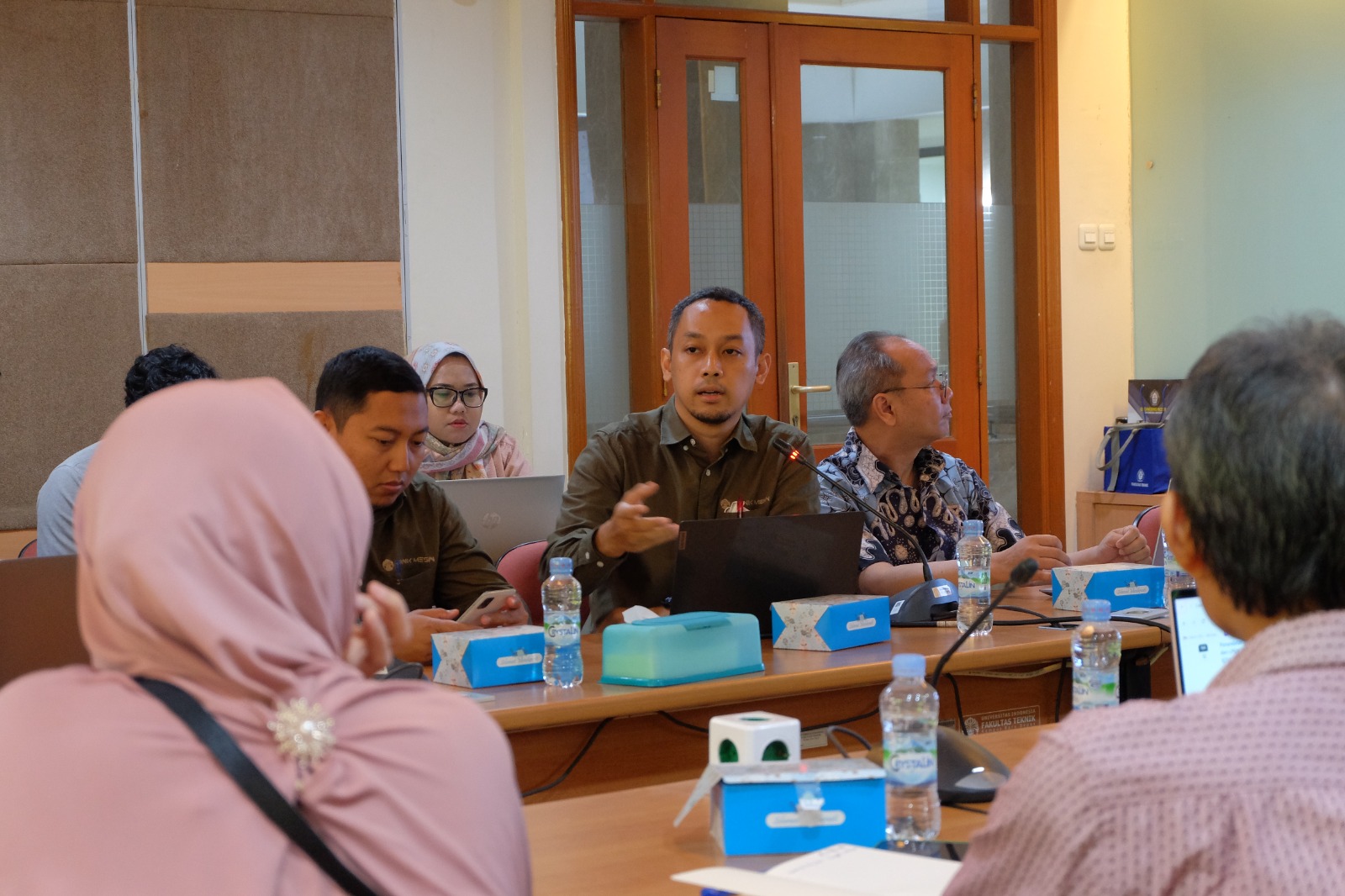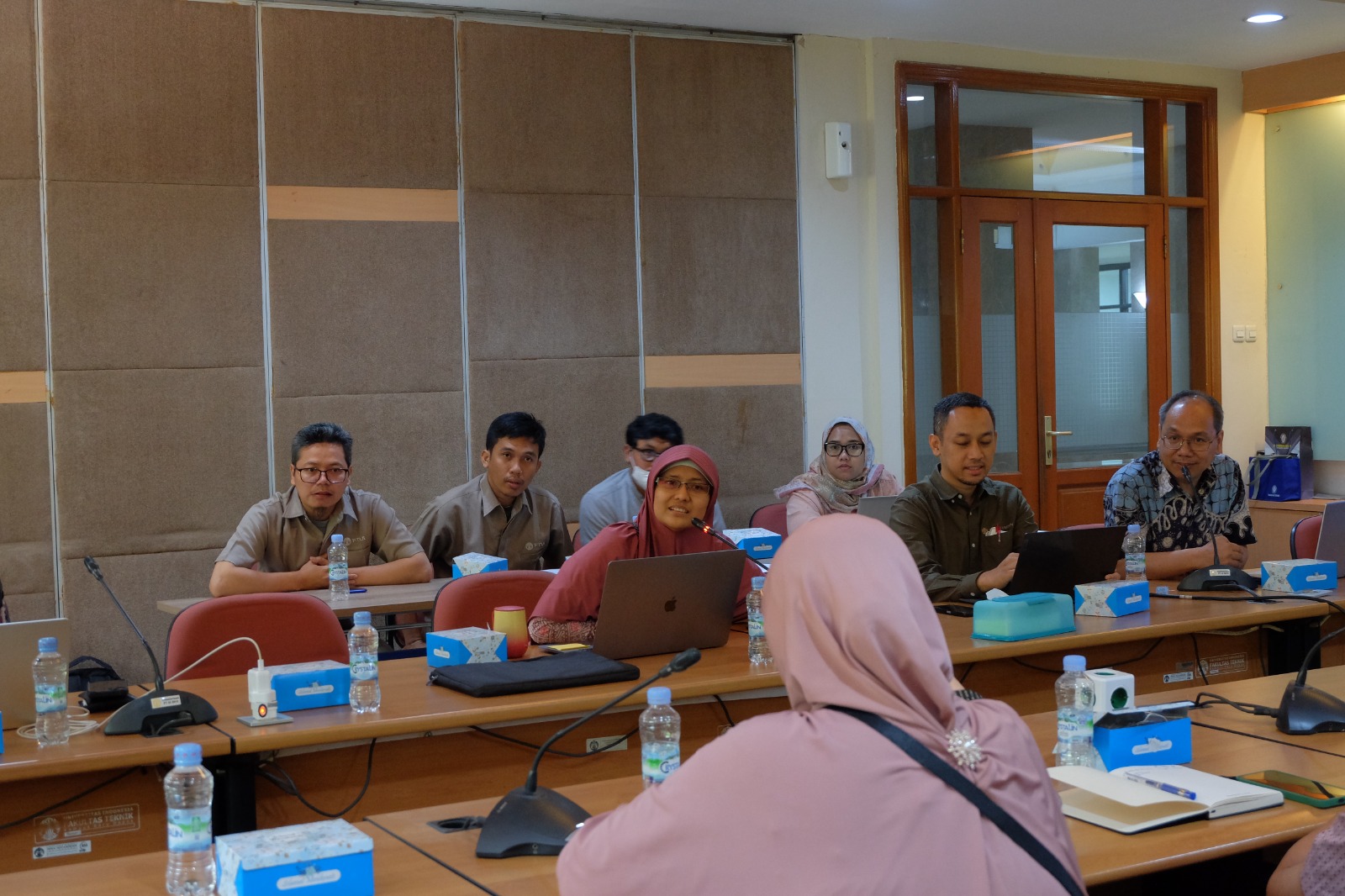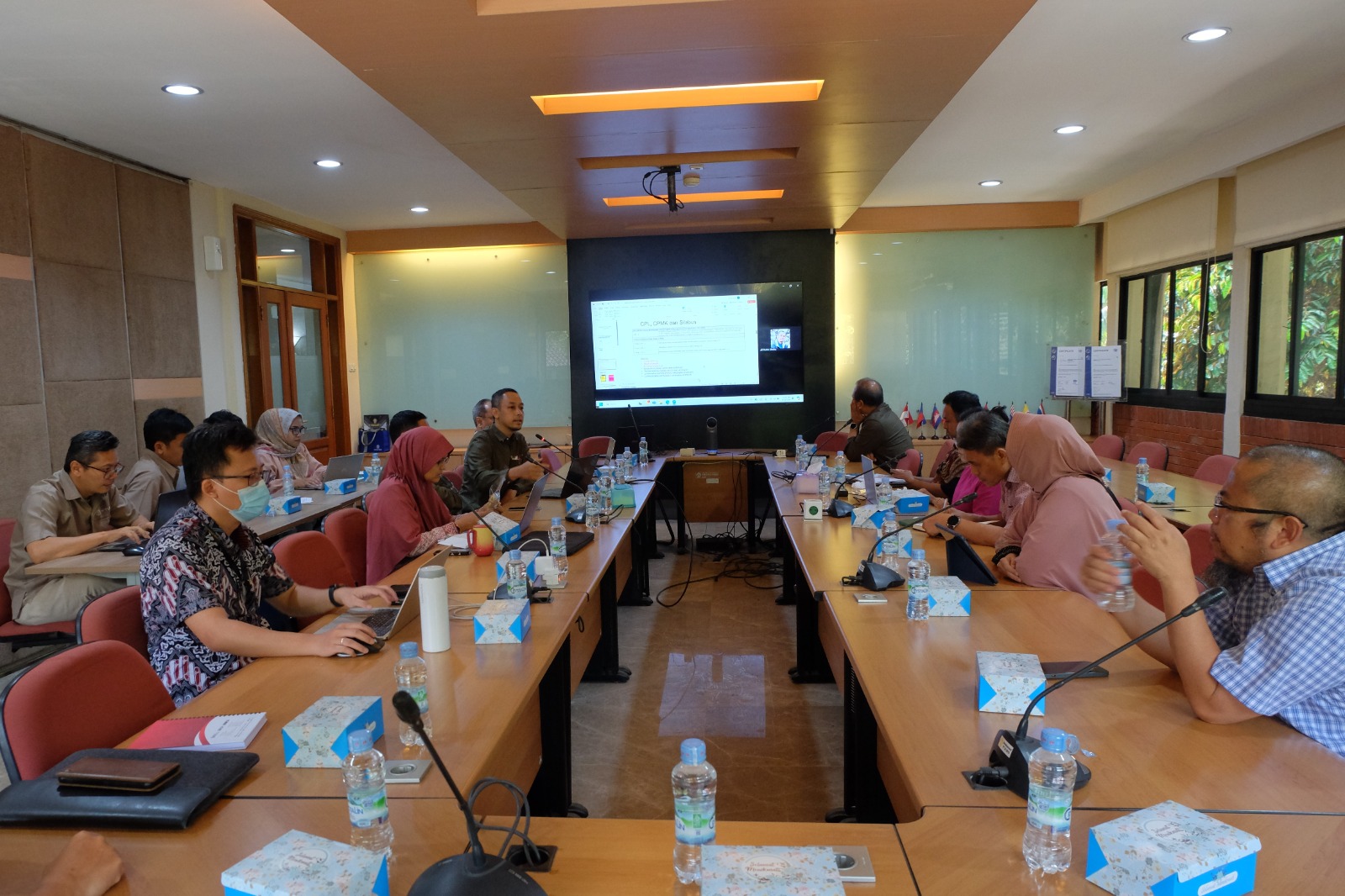The Faculty of Engineering, Universitas Indonesia (FTUI) held a Coordination Meeting for the new course, Introduction to Engineering Design (20/07), to discuss the implementation of one of the new Faculty Courses (MFK), which will be introduced in the Fall Semester of 2024/2025. This meeting is a strategic step to ensure that the course is taught effectively and aligned with the established educational objectives.
The Introduction to Engineering Design course is a cornerstone subject designed as an introductory course for first-year engineering students. It falls under the Graduate Learning Outcomes (CPL) 2, focusing on the development of design skills.
In this course, students will be introduced to design thinking, an approach that emphasizes human-centred problem-solving. This is crucial for new students who may not yet have a deep understanding of engineering principles.
Dr. Eng. Radon Dhelika, B.M.Eng., a lecturer in Mechanical Engineering and Coordinator for the Introduction to Engineering Design course, explained in the meeting, “This course is designed to teach students to think critically and creatively in an engineering context while introducing them to design processes based on engineering principles. Additionally, it aims to help students develop the ability to design innovative and relevant solutions to societal needs, using engineering knowledge as the foundation.”
“In previous discussions, the FTUI curriculum team identified several challenges regarding the assignment of instructors for the Introduction to Engineering Design course. These challenges stem from the ongoing transition period, which has overwhelmed many study programs with additional credit hour responsibilities for faculty. Therefore, we propose two schemes to enhance the course management efficiency,” explained Dr. Nyoman Suwartha, S.T., M.T., M.Agr., FTUI Education Manager.
The first scheme involves the centralized management of the Introduction to Engineering Design course by the faculty. In this scheme, the course will be centrally managed by a team consisting of course coordinators, lecturers from various study programs, and teaching assistants or students. This team will be responsible for all aspects of planning, implementation, and evaluation, ensuring that all teaching elements are well-coordinated and executed as planned.
For the learning process, the team proposed several stages to help students gain a deeper understanding of engineering design. First, all students will gather in a large class at the start of the semester for an introductory lecture that provides a uniform knowledge base. Following this, design thinking concepts will be delivered through MOOCs (Massive Open Online Courses), allowing students to study independently with comprehensive materials, offering flexibility in understanding and applying the design thinking concept.
The second scheme is aimed at study programs that wish to manage the course independently. However, the management must still adhere to the framework outlined in the Learning Design Guidebook (BRP), with a primary focus on design thinking concepts. This scheme provides flexibility for study programs to tailor the course to their specific needs while maintaining quality standards and consistency in learning outcomes.
“With these two schemes, it is hoped that the management of the Introduction to Engineering Design course can run more efficiently, both through centralized management by the faculty and independent management by the study programs, and address existing challenges,” Dr. Radon explained.
Prof. Ir. Mahmud Sudibandriyo, M.Sc., Ph.D., Acting Dean of FTUI, emphasized the importance of continuous evaluation in implementing the Introduction to Engineering Design course. “During the first year of implementation, various approaches and schemes will be applied through the Plan-Do-Check-Act (PDCA) method. This is done to find the best method that suits the learning needs and objectives. Periodic evaluations will serve as the foundation for improving and refining the course in the future. Thus, it is expected that next year, the selected scheme can be implemented more effectively in developing students’ competencies in engineering design.”
***
Public Communication Office
Faculty of Engineering, Universitas Indonesia




